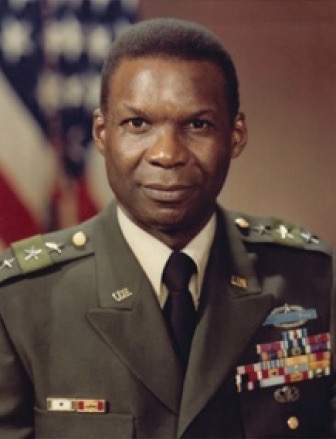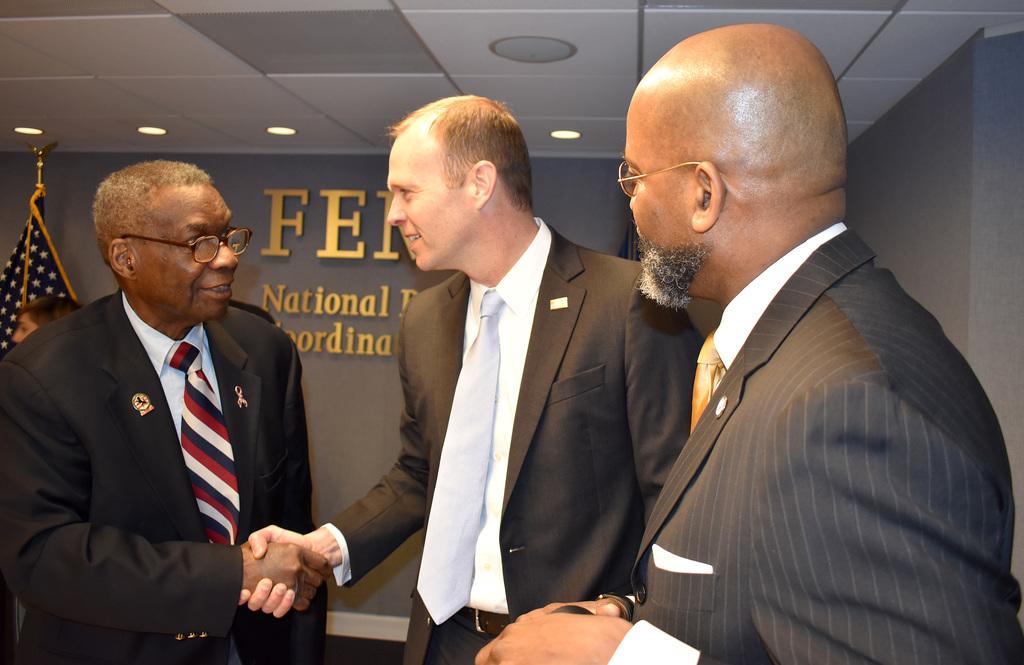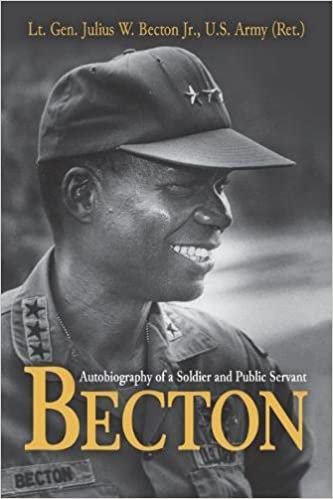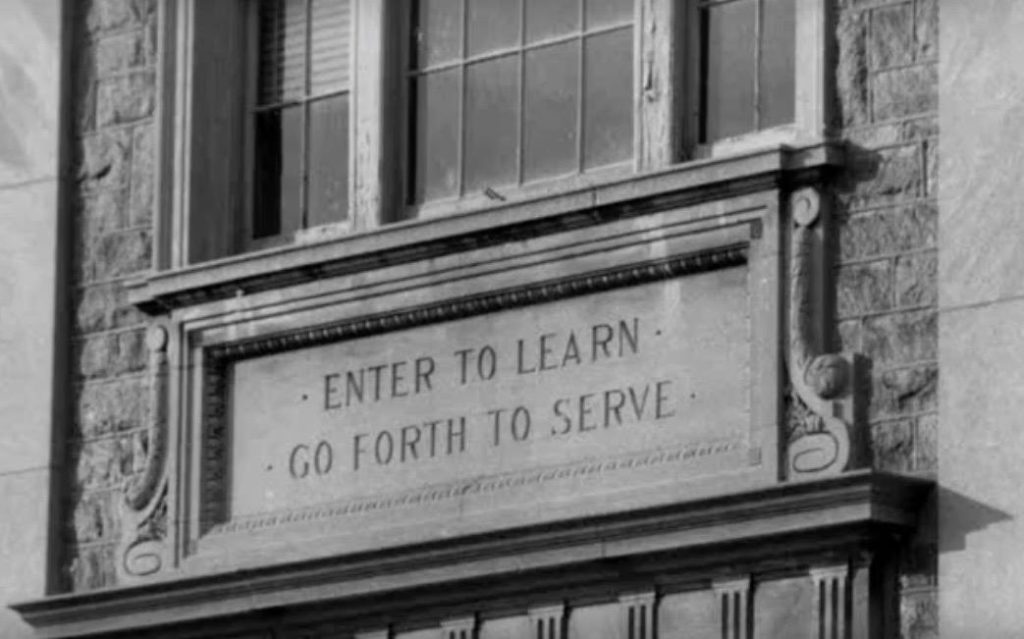Enter to Learn, Go Forth to Serve
Born in 1926, Julius W. Becton Jr., the first of two children in a proud family from Bryn Mawr, Pennsylvania, was the kind of student that teachers and coaches loved. He was polite, smart, athletic, and driven. It’s what his parents expected.
Growing up in Bryn Mawr Courts, an apartment complex where his father worked as a janitor, he remembers his parents constantly stressing the importance of a getting a good education.
Young Julius took his parents’ advice to heart. Excelling academically and athletically throughout his middle and high school years, he graduated from Lower Merion High School, one of the best public schools in the country, in 1944 with honors.
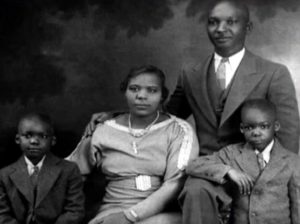
Julius Becton, on right, in a family photo, circa 1932. (PC: Lower Merion Historical Society)
Reflecting on the school’s motto, “Enter to Learn, Go Forth to Serve,” he said in a 2014 interview with the Lower Merion Historical Society, “I use that [expression] all the time. When you look at it, what better way to go to school? You’re not going to play. You’re going hopefully to learn something. And when you leave there, you should be better prepared to go forth and serve.” And he did.
WWII and Korea
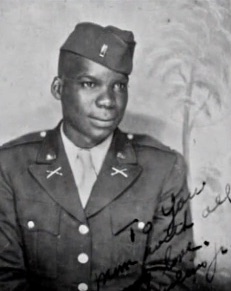
Becton as a 2nd lieutenant in 1945. (PC: Lower Merion Historical Society)
After graduating from high school, he entered the military. By August 1945, he had completed the US Army’s Infantry Officer Candidate Course and was on his way to the Pacific. With the Japanese surrendering on August 15, 1945, however, he soon returned to the States and joined the reserves.
His time as a civilian, though, was short-lived. With the outbreak of the Korean War in 1950, Becton was recalled to active duty and immediately sent overseas. Despite President Truman’s recently signed Executive Order 9981, mandating desegregation of the US military, Lt. Becton was assigned to the all-black 3rd Battalion, 9th Infantry Regiment. He would quickly distinguish himself as an outstanding young officer.
He Never Faltered
On the morning of September 17, 1950, Lt. Becton, a platoon commander with Company L, led his men in an attack against an enemy hilltop position near the Nakdong River. Immediately coming under a hail of North Korean small arms, machine gun, and mortar fire, Becton charged ahead, rallying his men to continue their assault.
But as he neared the summit, the 24-year-old lieutenant was hit by enemy fire. Bleeding from his wound and suffering from intense pain, Becton refused to go down. His men, inspired by their lieutenant’s determination to destroy the enemy, swarmed over the North Korean position and forced the communist defenders off the hill.
With dead and dying enemy soldiers littering the ground, Becton organized his platoon into a defensive perimeter and prepared for an enemy counter attack. Over the next ten hours, the lieutenant and his men, cut off from the rest of their company, repelled repeated enemy attacks. During the fighting, Becton was wounded three more times. But he never faltered.
Remarkably, the young officer survived the ordeal and was later awarded the Silver Star for his heroic actions.
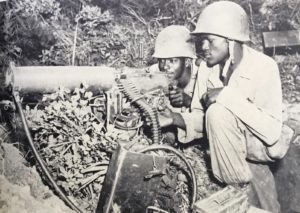
Soldiers firing a water-cooled machine gun near the Pusan Perimeter. (PC: US Army)
It Didn’t Matter If The New Soldiers Were Black Or White
Recounting the way much of the US Army viewed African-Americans at the time, Becton later told the Washington Post, “They thought black soldiers couldn’t fight — that they were not trustworthy and had no leadership skills.” Men like Becton, however, would prove them wrong.
“When our regiment lost men and needed replacements,” he continued, “it didn’t matter if the new soldiers were black or white. Our colonel said to put them where they were needed, and this led to the integration of the 9th Infantry Regiment . . . whatever their color/complexion had nothing to do with how well they could fight.”
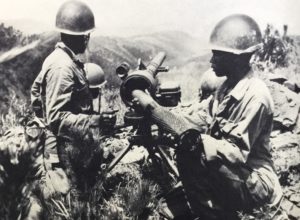
Soldiers fire a 75mm recoilless rifle along the Pusan Perimeter. (PC: US Army)
A Life of Service
Becton returned from Korea and eventually fought in Vietnam, attained the rank of Lieutenant General (three stars), and commanded an entire Army Corps (VII Corps) in Europe in the late 1970’s. Retiring from the Army in 1983, with nearly 40 years of service, he went on to hold numerous government and education administration positions, including director of the Federal Emergency Management Agency (FEMA) and president of Prairie View A&M University, his alma mater.
A proponent of military and public service, Becton said in a 1997 speech at the University of Pennsylvania:
“My feeling is that every citizen should make a personal investment in this country in order to appreciate what it offers, and in so doing learn about other citizens, a process which is otherwise routinely missed.”
Looking back on his lifelong career of service to the military, the government, and educational institutions, there’s no doubt that Becton’s teachers and coaches at Lower Merion High School would be proud.
Thank you, General Becton, for your remarkable dedication to your family, fellow soldiers, and country. We salute you!
Postscript
Becton, 92, and his wife, Louise, met in high school and were married in 1948. Louise passed away on Jan. 23, 2019. They have five children, ten grandchildren, and three great-grandchildren.
Top/Feature picture: Gen. Julius W. Becton, Jr. (blackpast.org)
